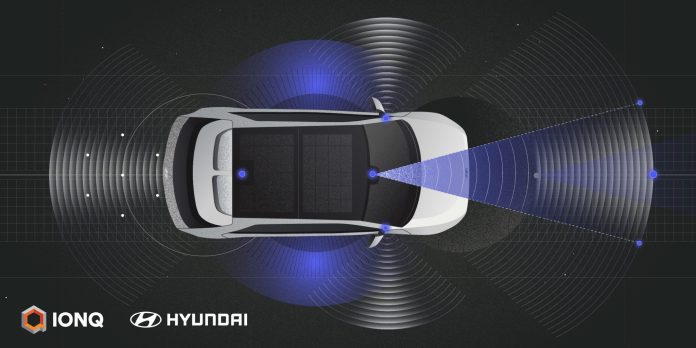As part of this project, IonQ and Hyundai aim to develop quantum techniques for 3D object detection
U.S. quantum computing company IonQ and Hyundai Motor Company recently announced a new project to apply quantum machine learning to image classification and 3D object detection for future mobility applications.
The Korean car manufacturer noted that image classification and 3D object detection are foundational steps toward the “next generation of mobilities”, including autonomous vehicles. As part of the agreement, IonQ and Hyundai will look to improve computational functionality through more efficient machine learning on quantum computers, as they can process enormous amounts of data faster and more accurately than classical systems.
IonQ is already well underway in classifying 43 types of road signs using IonQ’s quantum processors. The next phase will see the two companies apply IonQ’s machine learning data to Hyundai’s test environment and simulate various real-world scenarios.
“We are excited to expand our existing relationship with Hyundai Motor to focus on another key aspect of next-generation mobility,” said Peter Chapman, president and CEO of IonQ. “From partnering on battery research for electric vehicles to image classification and object detection research for automated driving, we expect to see quantum computers become an even more integral part in developing novel transportation solutions.”
As part of this project, IonQ and Hyundai aim to develop quantum techniques for 3D object detection, expanding the current work on recognizing road signs to include other objects like pedestrians or cyclists. Running object recognition tasks on IonQ’s latest quantum computer, IonQ Aria, should enable more efficient processing with lower costs, leading to the development of safer, more intelligent mobilities in the future, Hyundai Motor said.
In January, the two companies had inked a partnership to develop new variational quantum eigensolver (VQE) algorithms to study lithium compounds and their chemical reactions involved in battery chemistry.
Quantum-powered chemistry simulation is expected to significantly enhance the quality of next-generation lithium batteries by making improvements to the devices’ charge and discharge cycles, as well as their durability, capacity and safety, Hyundai Motor said.
The Asian car maker highlighted that this collaboration is a crucial component of Hyundai’s Strategy 2025 goals, which include the sale of 560,000 EVs per year and the introduction of more than 12 battery electric vehicle (BEV) models to consumers.

